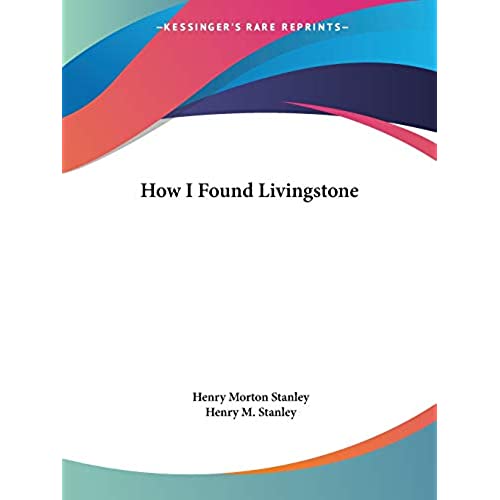

How I Found Livingstone
-

Kindle Customer
> 3 dayI am deeply amazed at the dedication and fortitude of these men. Their courage and strength of character are truly astounding. An intricate look at history and the thirst for knowledge. I have been humbled by this whole reading experience. I view our world through different eyes. I mourn the passing of men of this nature, the pure scholars.. How would they view our world now?
-

Mark from Haifa
> 3 dayI had heard the famous line when Stanley met Livingstone in Africa after a long search: Doctor Livingstone, I presume? This is the true story of Stanleys search, as told by him. It was an amazing adventure - though one most of us would prefer to experience vicariously. Stanley was working for a New York newspaper when his boss told him to look for the explorer Dr. Livingstone, who had not been heard from in years and was variously thought to be dead, in danger, or avoiding contact. Stanley simply picked up and went, without hesitation, on the way following instructions to visit and write about the opening of the Suez Canal, the sights of lower and upper Egypt, Warrens excavations in Jerusalem, Persia, and India. His real challenge started when he reached Africa and had to organize an expedition to the interior. Turns out that money was useless in the interior. To pay for food and tribute to local chiefs, he had to purchase and carry large bales of cloth and strings of beads - different types and colors for the various tribes whose territories he expected to pass through. And then he had to hire many native bearers to carry these heavy loads - with extra cloth to pay for their food, too. Of course there were other difficulties - malaria, greedy local chiefs, wars, difficult terrain, floods, ... . Sit in your comfortable chair in your screened home and read all about this most challenging and uncomfortable trip. Happy reading!
-

Charles J. Helseth
> 3 dayThe story is awash with mind-numbing details using un-explained and un-familiar names/terms which sometimes leaves ones head spinning. I stuck with it because of the actual history it relates.
-

JudyB
> 3 dayI began reading this book from a program on tv that was an expedition that followed the path of Stanleys account from this book. It was so interesting that I wanted to see why this book led them to do this dangerous expedition. I loved it. The book uses the language of the day and is very very well written.
-

Ms Chie Vious
Greater than one weekthis book is very very very repetitive (did you catch catch that?). However, Henry transports you to Africa right into the tribal culture, which is purely a magical read.
-

jjjkkk
Greater than one weekAn interesting account for those who like a first-hand, historical perspective. Stanleys writing is a little verbose compared to todays but, all-in-all, quite entertaining.
-

Kelly Paul
Greater than one weekGreat shape!
-

Bill K.
> 3 dayVery sastified
-

Sierra Muller
> 3 dayExcellent adventure and writing.
-

Kindle Customer
> 3 dayThis is Henry Stanleys first hand account of the expedition to find Dr. David Livingstone who went missing in Africa. The book is both an account of his search and a travelogue of Africa during the Victorian period.

